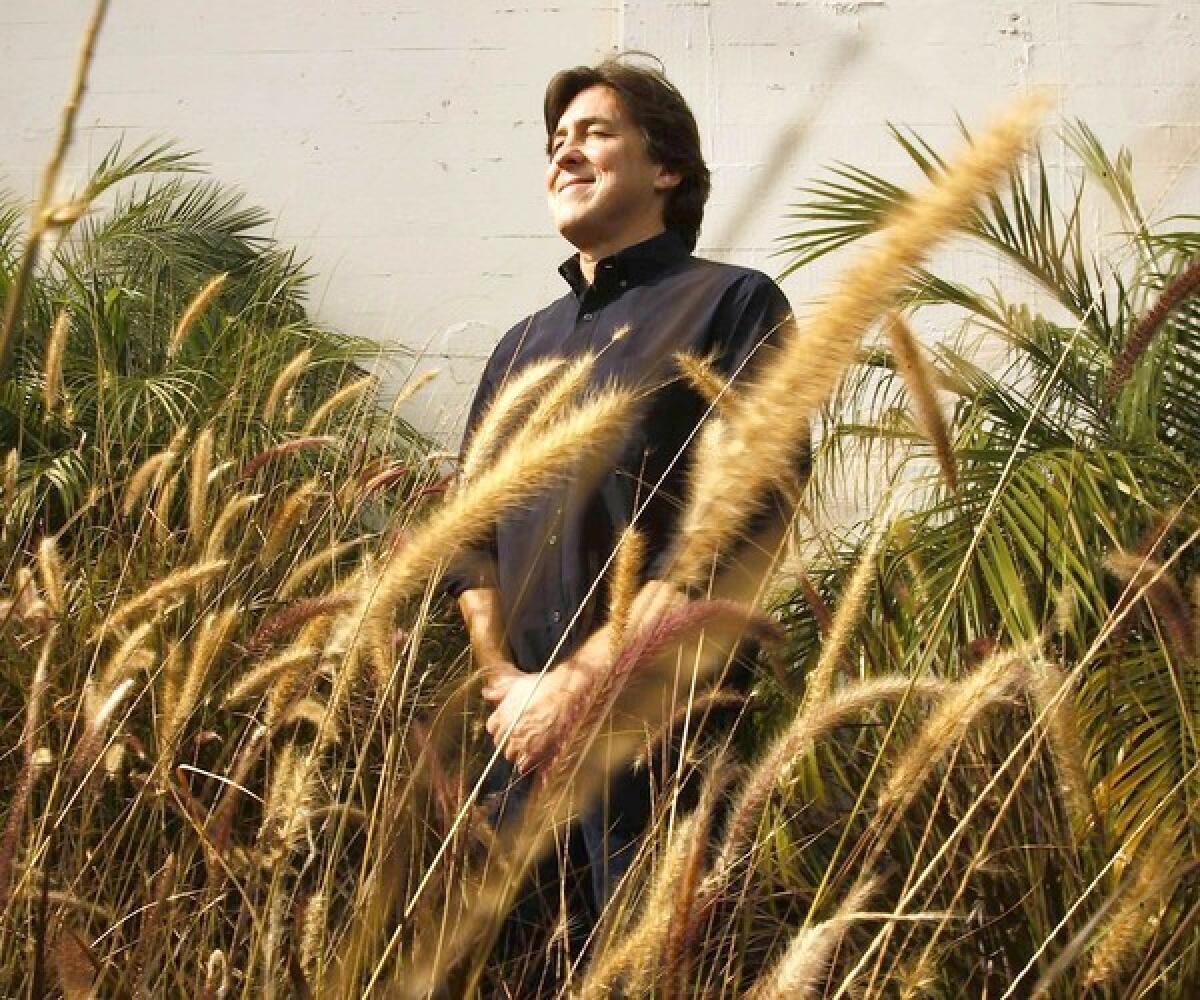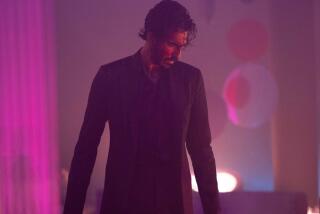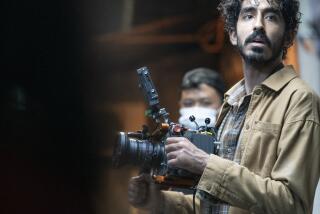The Directors: Cameron Crowe wrangles emotions and ostriches

Cameron Crowe thought he would be directing a Marvin Gaye biography, not wrangling a herd of ostriches on the Thousand Oaks set of “We Bought a Zoo.”
The legendary soul singer and wild animals would seem to have little in common, but Crowe the boyish 54-year-old “Jerry Maguire” filmmaker said the two movie projects were ultimately much alike — both love stories.
When “My Name Is Marvin” fell apart early last year over casting and budget issues, Crowe quickly jumped into “We Bought a Zoo,” the writer-director’s first narrative feature since 2005’s critical and commercial dud “Elizabethtown.” Loosely adapted by screenwriter Aline Brosh McKenna (“The Devil Wears Prada”) and Crowe from the BBC miniseries “Ben’s Zoo” and the book “We Bought a Zoo,” the movie, opening Dec. 23, follows the unusual midcareer switch by journalist Benjamin Mee, who moved with his family into England’s Dartmoor Zoological Park.
The fact-based story has been fictionalized and relocated from the United Kingdom to the United States. Even though Benjamin’s taking over a failing zoo is still central to the plot, that’s not really what “We Bought a Zoo” is about.
Six months before the film opens, Benjamin (Matt Damon) has become a widower. He is as discontented as a newspaper reporter — even with a great gig at the Los Angeles Times! — as he is as a single dad. His brooding adolescent son, Dylan (Colin Ford), draws violent pictures and is expelled from school, while his 7-year-old daughter (Maggie Elizabeth Jones) tries to become the family’s substitute mom.
“Do me a favor,” Benjamin’s brother, Duncan (Thomas Haden Church), counsels him. “Attempt to start over.”
But Benjamin has no interest in ditching the memory of his wife and courting the single moms pushing lasagna and themselves his way. Instead, he believes he needs a new adventure, so he quits his job and sells his home. When a real-estate agent shows Benjamin a sprawling rural estate whose residence happens to be part of a zoo, he jumps in. “This is simple destiny,” he says of reviving the run-down Rosemoor Wildlife Park.
Benjamin has to fix the zoo’s enclosures and care for an ailing tiger. Yet “We Bought a Zoo’s” real repair work is personal: Benjamin must mend his own self-absorption and his fractured relationship with his son, whose grief his father has failed to address.
“The zoo is like the mall in ‘Fast Times at Ridgemont High,’” Crowe said during filming, as Church and Damon tried to do a scene while the ostriches kept pushing against them, mistaking their tool belts for feed bags (the animals, including the tiger from “The Hangover,” were mostly imported from local teaching zoos). “It’s not just the setting, but a pressure cooker — an incubator.”
Audiences might detect two different films within “We Bought a Zoo.” The first is the sometimes slapstick fish-out-of-water story of a city dweller struggling in a new career, even though helpful zookeeper Kelly Foster (Scarlett Johansson) makes Benjamin’s leap easier. The second is Benjamin’s learning that all animals — especially his son — often require special handling and that “letting go” might be an empty aphorism that can’t relieve his sorrow.
“I loved the metaphor that was in the script — the loss in his life,” said Crowe. Most movies would follow Benjamin’s romantic reawakening — let his late wife (Stephanie Szostak) fade from memory and let him try to tame Kelly. But Crowe said he wasn’t interested in following that path, a choice dramatized in the film’s unusual final scene.
“People make this big case, ‘You gotta move on, you gotta move on.’ And I say, ‘Really? Who says you have to move on?’” Crowe said. “Benjamin is a guy who is still in love with his wife, and he is not going to get shaken from that. That’s the greater challenge: to pay tribute to the person who’s not around anymore.”
Crowe, who has twin 11-year-old sons and is recently divorced, built his career on youthful infatuation — his first two features were “Say Anything” and “Singles.” Before “We Bought a Zoo,” he said, “I hadn’t been able to write about adult love as I had experienced it.”
But what shaped the movie more was his experience as a father, reflected in an emotional fight between Benjamin and Dylan and in a line the father tells his son. His son’s friends have failed to visit, even though Benjamin has called them up and beseeched them. “That comes from being a parent — the stuff you do after hours that you never tell your kids about,” Crowe said. “I never could have written those lines if I hadn’t been a parent.”
More to Read
The biggest entertainment stories
Get our big stories about Hollywood, film, television, music, arts, culture and more right in your inbox as soon as they publish.
You may occasionally receive promotional content from the Los Angeles Times.







